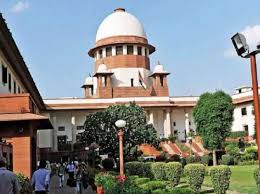Whereby it has been held that notwithstanding the winding up order dated 1st December 2003 in the case of M/s. Sri Vishnupriya Industries Limited[For short, ‘the Company], and the provisions of Section 529A and 530 of the Companies Act, 1956[For short, ‘Companies Act’.], the customs authorities have the first right to sell the imported goods under the Customs Act, 1962[For short, ‘Customs Act’.] and adjust the sale proceeds towards payment of customs duty. (Para 1)
Having considered the provisions of the Companies Act, and the general principles of law, we would now proceed to examine whether the Customs Act creates a first charge for payment of the customs dues, and if so, harmonise and resolve the conflict between the Companies Act and the Customs Act. (Para 21)
We have also examined Sections 61, 72 and 142 of the Customs Act[These provisions, though relevant, are not being reproduced for the sake of brevity.] to consider the question of whether the Customs Act confers and creates statutory first charge on the customs dues, and are of the opinion that the sections do not incorporate a statutory first charge to override the general law, as per the dictum in Dena Bank (supra). The provisions of the land revenue enactment applicable in the present case have not been relied upon by the respondents, in which event, a legal issue relating to conflict of laws would have arisen and required an answer. The provisions in the Customs Act do not, in any manner, negate or override the statutory preference in terms of Section 529A of the Companies Act, which treats the secured creditors and the workmen’s dues[As defined and payable in terms of Section 529(3)(b) of the Companies Act.] as overriding preferential creditors; and the government dues limited to debts ‘due and payable’ in the twelve months next before the relevant date, which are to be treated as preferential payments under Section 530 of the Companies Act, but are ranked below overriding preferential payments and have to be paid after the payment has been made in terms of Section 529 and 529A of the Companies Act. Therefore, the prior secured creditors are entitled to enforce their charge, notwithstanding the government dues payable under the Customs Act. (Para 24)
The sale proceeds deposited in this Court and converted into fixed deposit receipts, along with the interest accrued thereon, will be paid to the Official Liquidator to be distributed in accordance with the provisions of Sections 529A and 530 of the Companies Act. There would be no order as to costs. (Para 28)
SUPREME COURT OF INDIA
2023 STPL(Web) 187 SC
[2023 INSC 746]
Industrial Development Bank Of India Vs. Superintendent Of Central Excise And Customs And Others
Civil Appeal No. 2568 of 2013-Decided on 18-8-2023
https://stpllaw.in/wp-content/uploads/2023/08/2023-STPLWeb-187-SC.pdf







